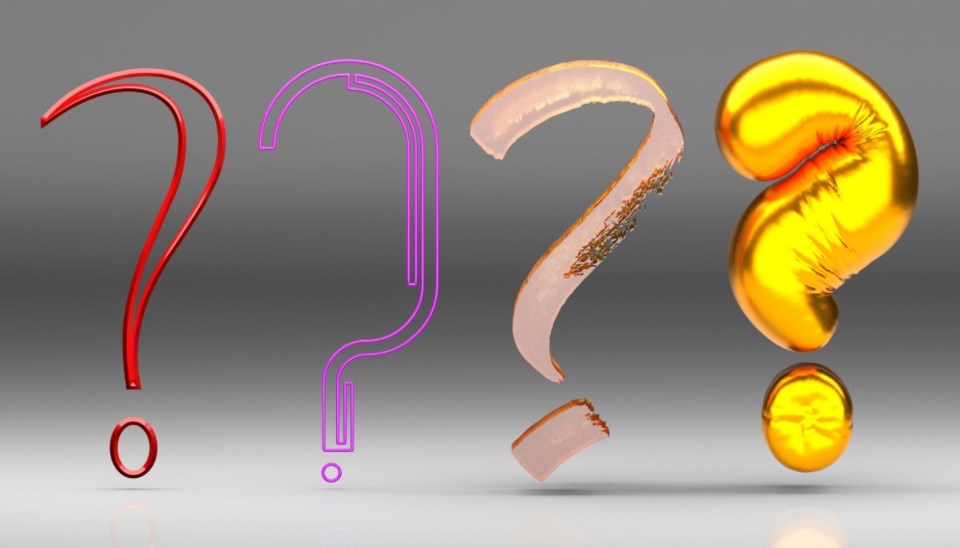I guess I’m on a bit of a saint/apostle kick. On Saturday, I wrote about St. Matthias and how my imagination was captivated by why he was chosen. There’s another apostle who tugs at my brain and heart very often, too: Thomas.
I’ll admit that, when I was younger, I used to be quite black-and-white about Thomas. Judgmental, even. After all, he lacked faith. He didn’t just immediately believe Jesus had returned; he had to see it. And, many sermons I heard were along the same lines: Don’t be like Thomas. Your faith should be stronger than that.
And yet, as I’ve gotten older, I’ve come to appreciate Thomas a bit more. In fact, I think he might even be the patron saint of our age. Because, in Thomas, we have a lesson in how to deal with uncertainty, and right now seems like such an uncertain time in so many ways.
Thomas and his friends had just had their world blown apart. Not only did they lose their leader, their messiah, but it was done in such a violent, scary way. They saw Jesus tried, tortured and crucified. Then they themselves became targets, so much so they had to hide away or face the same treatment. They were very much alone and in uncharted, dangerous territory. Everything had crumbled. What remained was scary to comprehend.
Where to go from here? What to do? What was going to happen? Who had the plan now? That’s uncertainty writ large.
Then Jesus reappeared and some people saw him, told others. Most were elated, joyful. Talk about an emotional 180: Despair to hope in three days.
But, not Thomas. No, he refused to get caught up in what he wanted to be true (probably with every fibre of his being) in the face of all that uncertainty. He needed to ground himself in the physical presence of Jesus and feel his wounds before he got carried away. Once he had that proof, though, Thomas was all in.
Why do I think Thomas is a lesson in dealing with uncertainty? Because, in moments where we don’t know up from down and need an answer, any answer, we will often grab at it without thinking. I know I do. I don’t stop and ground myself in what’s going on before leaping after something I think will save me and make it all go away.
The others leapt; Thomas didn’t.
Were the rest wrong and Thomas right? Just like I’m trying not to see Thomas in such black-and-white terms, I’m going to look at this in a more shaded way. Everyone handles uncertainty differently. We’re not all wired the same. Maybe Thomas knew he was a chronic over-thinker and had learned, over time, that he had to bring his brain back from spiralling out and center himself in physical reality.
We have a lot of crucifixions happening all around us these days it seems. Everywhere you look, from healthcare and housing to politics and the environment, there’s apparent chaos and crumbling. Things are dying, we don’t know what’s coming next. This isn’t new and past generations faced the same uncertainty, or worse. But it’s the first time we are going through it, and that’s going to be scary. I know it is for me.
There’s also a lot more noise around us. Social media, for example, is full of chatter, some of it useful, most of it not. Open any app and you’ll find people wanting to tell you either to fear everything or that they have the answer, the truth, that you need to survive all this. They’ve connected the dots, so you don’t have to. You swing between one extreme and another, from despair to euphoria, fear to hope. It can also make everything seem so much worse, because there’s no context, nothing real, that you can touch and know is true.
I think the lesson I take from Thomas is, in the face of uncertainty, to ask questions, demand proof and don’t let myself get carried away. That’s the grounded way to deal with uncertain times. Be ready to celebrate, but first touch the wounds.
So, here’s a nomination for Thomas to be a saint we look to in these uncertain times. He’s a reminder of what we need when the world gets loud and we’re not sure how to proceed.
Kevin Aschenbrenner is a Victoria-based writer, poet and communications professional. He holds an M.A. in Culture and Spirituality from the Sophia Center at Holy Names University in Oakland, Calif. He blogs at .
You can read more articles on our interfaith blog, Spiritually Speaking, at /blogs/spiritually-speaking



